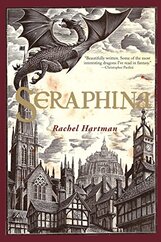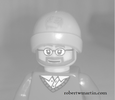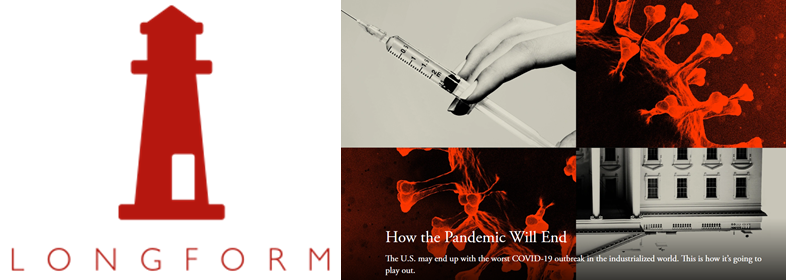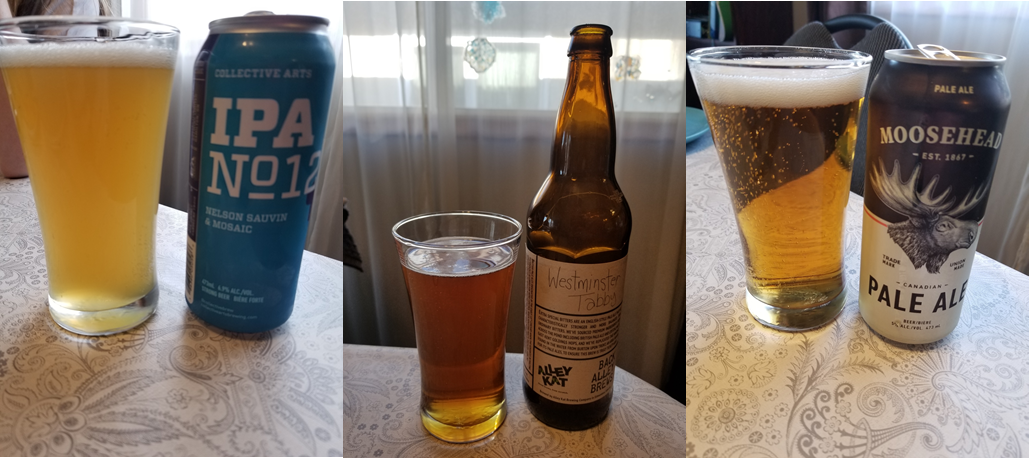|
Greetings from 53.5° north latitude where it is unbelievably, and frustratingly, still winter.
This week saw the world surpass 1.8 million confirmed COVID cases, and the US going over the 20,000 mark to become the country with the most confirmed COVID-related deaths globally. Here in Alberta, we hit 40 deaths so far, but that is a far cry from the estimated range of 400 and 3,100 deaths as modeled by AHS and presented to the public by the Premier (video below). We are only 10% of the way to the best-case scenario right now, which is really staggering. Is there a bright side to all of this? Is there something positive we can take away? I think there is, whether it be the wonderful in-home concerts we can watch, the positivity from so many people, or the companies around the world retooling so they can focus on creating life-saving equipment. Plus so many of us are finding ways to stay connected even if we are alone. I remember back in my twenties hearing for the first time that there was a difference between being alone and being lonely. If we can stay alone or at least only together with our household while still finding ways to stay connected, we can come out of this okay. Don't get me wrong, the world will be changed, and mental health will be greatly impacted in addition to the more obvious physical issues. But that doesn't mean the world will be or has to be worse than it is now.
Reading Pile:
I am taking advantage of as many opportunities as possible to do something new. The most obvious at this point is a reading group I joined hosted by author Adam Greenfield. This isn't a typical book club or even a contemporary international reading, but rather a group reading about specific theories and books in the social sciences.
Our first book was "Notes Toward a Performative Theory of Assembly" by Judith Butler. My proviso for this is that I didn't read the whole book like the rest of the group. I thoroughly read about ten percent and then skimmed the rest. Butler's reputation of writing obtuse and hard-to-read prose is apparently well-deserved. Not that I knew about Butler's reputation, or even Butler at all, prior to the group discussion.
Our second book which we delved into this week was "The Wretched of the Earth" by Frantz Fanon. Again, never heard of him but his writing was much more consumable albeit dated. Written in 1961, Fanon wrote in the language of the day: Man this, man that, women as an object. Trying to get past that, we focused on the chapter "On Violence" which discusses the need for the colonized to stand up to the colonizer.
At the individual level, violence is a cleansing force. It rids the colonized of their inferiority complex, of their passive and despairing attitude. --Franz Fanon
I am grateful for the opportunity to be exposed to different thinking, different intellectuals, and completely different discussions, but I am concerned with my ability to contribute to the ongoing discussion. That said, I did propose that we discuss the use of the "war" moniker and metaphor in our COVID responses and that received enthusiastic support. Cue up some Susan Sontag!
Switching over to the "listening pile" for a minute, I was able to find time to dive into the recent Longform interview with science writer Ed Yong. Yong had just completed a great article on COVID for The Atlantic, which is definitely worth reading in addition to or instead of the Longform interview. While the whole interview was enjoyable, my favourite part was in the first few minutes as they were getting settled and Yong compared his COVID-reality life to a combination of "Groundhog Day" and a Michael Bay movie: stunningly mind-numbing repetition followed by scare-you-out-of-your-seats moments. Yep, pretty much sums up the last month. The last bit of non-fiction reading this week was a throwback to 1997. Back in January, I commented on the Longform interview with Kevin Kelly, former editor at Wired. This 1997 article was co-written by Kelly and comments on the soon-to-be demise of the browser and the coming wonders of push technology. 
It is interesting to read something from twenty-three years ago, especially given that the Internet as we know it was barely a couple years old at the time of publication. A lot has changed, of course. Talk of T1 lines seems antiquated, even though I can remember being proud to commission my first T1 installation not long before that article came out.
We can expect a billion Web pages by 2000. Some of them will even be worth reading. -- Wired, March 1997
Where the article was most prescient was its predictions regarding technology pervasiveness and the dependency content producers would have on advertising. At one point, the authors predict that this new world of push technology, which has somewhat been replaced with notifications, will be "gentle, in-your-face, intermittent, in the background, or always on." The always-on-ness of our world these days is definitely one of our defining societal problems. See my comments from last October regarding Michael Harris's book "Solitude: A Singular Life in a Crowded World". As for their other prediction, some form of the word "advertising" appears eight times throughout the article. Maybe the authors were afforded a crystal ball and could see their magazine's web page covered in ads from their parent company and lifestyle brand, Condé Nast.
On to fiction. First, I am continuing to read "The Count of Monte Cristo" and am thoroughly enjoying it. It holds up quite well at nearly 200 years old. One of my favourite lines so far in the book came in the penultimate paragraph of Chapter XXX, and it really sets up the revenge section of the novel.
I have taken the place of Providence to reward the good; now let the avenging God make way for me to punish the wrongdoer! --The Count of Monte Cristo, Chapter XXX 
I also finished another book this week. Book #13 for 2020 was "Seraphina", by Rachel Hartman. This was a wonderful and unique Young Adult novel, that earns the YA moniker in all the best ways. The eponymous protagonist was not an orphan, which is of course the single worst trope in YA novels, plus was part of the solution but realized she could not cannot do it alone. No pushy teen sidestepping the lame-brained adults in this novel. There was a great message about the importance of family and friends and how solutions are best solved together and not alone. I'm not an expert on the middle ages, but the setting seemed to be a realistic, wealthy monarchy set in a middle ages equivalent world. Hartman was able to introduce IRL middle ages items and terms, such as houpelandde, oud, and sackbut (see the New Words section below for all three), and added to the dragon mythos with new words like saar, saarantras, and dracomachia (you will have to read the book to get definitions for these). All in all, a great novel worthy of your time and energy to read whether you are in the YA time frame or just like a good novel.
New Beers:
Three new beers this week from three different Canadian breweries, Collective Arts, Alley Kat, and Moosehead. The first was the Collective Arts No. 12 IPA which was a nice hazy IPA with a lot of citrus and a refreshing taste. (3.5 / 5). The second was the Alley Kat Westminster Tabby from their Back Alley Brews line. This Extra Special Bitter benefited from the authentic British malts, and according to the label Alley Kat even replicated the minerals in the water from Burton Upon Trent in the UK. It is a shame this is a limited edition beer that isn't sticking around. (3.75 / 5) Last up was the Moosehead Pale Ale. A pale ale is by definition pale which implies not a huge amount of flavor or aroma. Moosehead's Pale Ale was a decent representation of a style that doesn't have a lot going for it, in my opinion. Decent, drinkable, but pretty forgettable. (3.25 / 5)
New Words:
Lots of new words this week, partly because I caught up with all of the words from "Seraphina", but also because of the Fanon, Butler, and Monte Cristo readings. phlegmatic [fleɡˈmadik] ADJECTIVE
probity [ˈprōbədē] NOUN (formal)
postulant [ˈpäsCHələnt] NOUN
superadded [ˌso͞opərˈadəd] ADJECTIVE
houppelande [hüˌpländ] NOUN
oud [o͞od] NOUN
sackbut [ˈsakˌbət] NOUN
auto-da-fé [ˌôdədəˈfā] NOUN
tonus [ˈtōnəs] NOUN
puerile [ˈpyo͝orəl, ˈpyo͝orˌīl] ADJECTIVE
hieratic [ˌhī(ə)ˈradik] ADJECTIVE
enchiridion [ˌeNGkəˈridēən, ˌenkī-] NOUN (formal)
ab ovo [ab ˈōˌvō, äb] ADVERB
salutary [ˈsalyəˌterē] ADJECTIVE
mot juste [ˌmō ˈZHo͞ost] NOUN
apotheosis [əˌpäTHēˈōsəs] NOUN
prevaricate [prəˈverəˌkāt] VERB
redoubt [rəˈdout] NOUN (military)
0 Comments
Your comment will be posted after it is approved.
Leave a Reply. |
Archives
April 2022
Categories
All
|




 RSS Feed
RSS Feed
